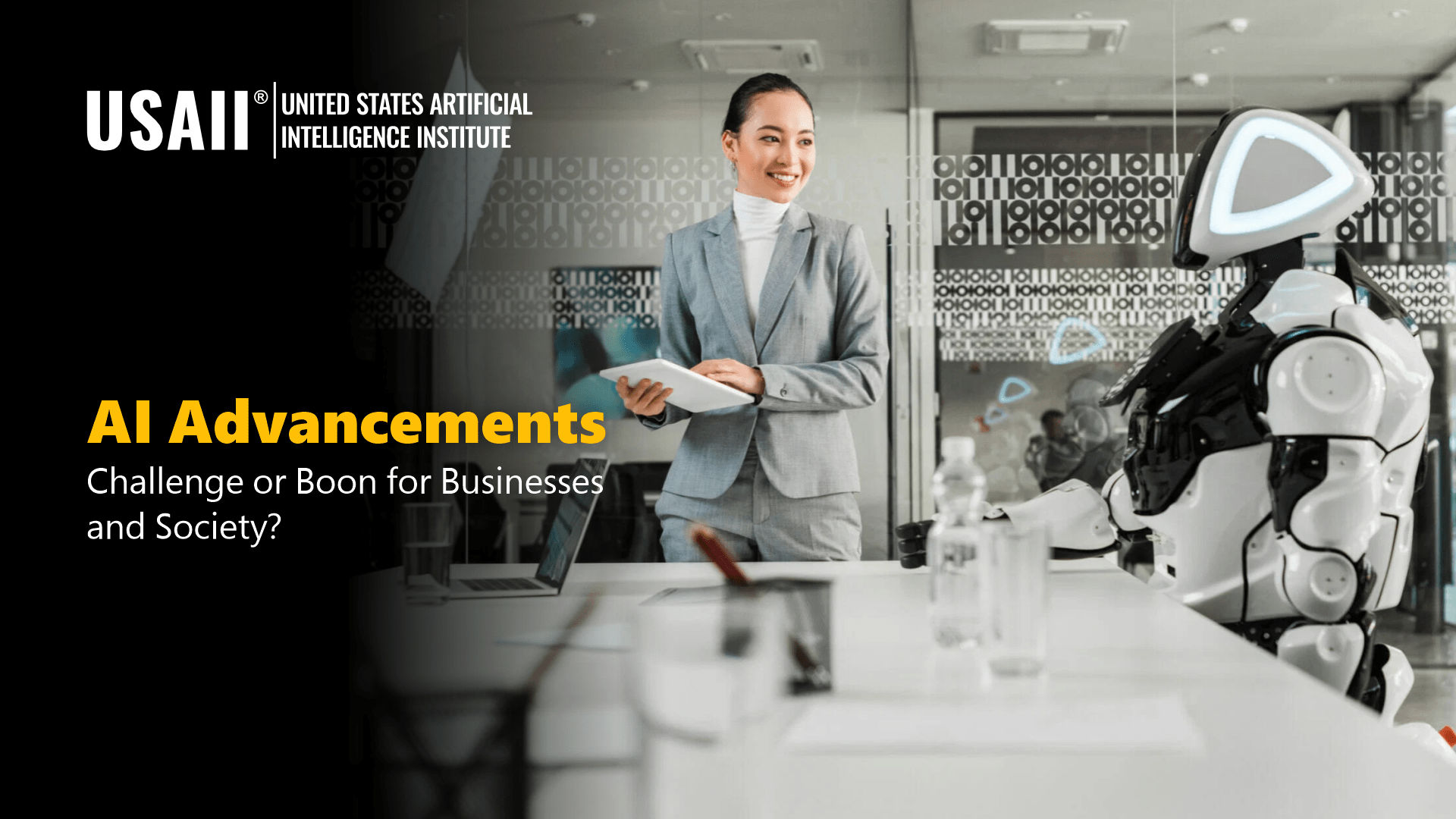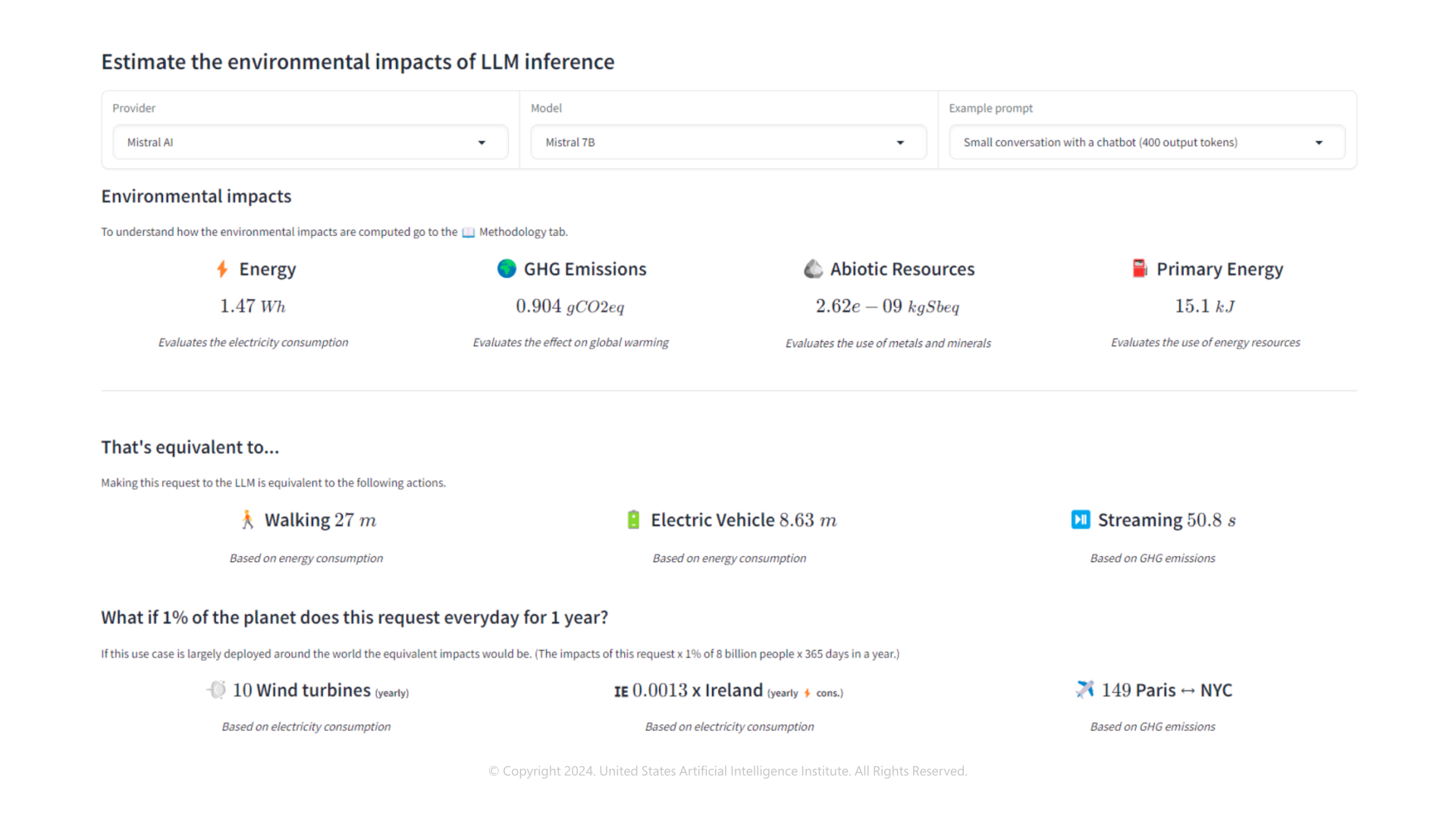
As you stay updated with AI developments, you will often notice discussions starting with a disclaimer: “Things are moving fast.” This sensible precaution acknowledges that today’s truths may evolve tomorrow. The latest multimodal model release exemplifies this, leaving many of us both puzzled and awed. AI innovations are propelling enterprises toward a more efficient and innovative future.
In this article, we delve into the intricate influence of AI on corporate operations and society.
We will explore how is radically changing business processes and operations. Businesses are taking AI seriously, due to its capability to give a competitive edge in fueling growth, increasing productivity, and enabling innovations.
Though AI brings lots of promise for the future, it also introduces risks that organizations and society must navigate mainly regarding data privacy, bias, and transparency.
Operational Transformation
AI brings a lot of predictability and thus facilitates decision-making. AI has started changing the jobs of doctors, coders, and analysts and probably shortly, will change the job nature of most of us across industries. The power of multimodal AI solutions will bring different combinations and scenarios, of using voice, video, and cameras in day-to-day operations.
In many organizations, unfortunately, IT is still regarded as a support function, not as a strategic enabler. With the adoption of AI, organizations should place IT as a critical aspect of their operations and a critical part of their strategic decisions and roadmap. Though AI is already applied in various industries, the application is still at an initial stage.
Probably the trendiest AI application in different companies is the use of AI-powered Chatbots, due to the advances in LLM models. The recent advances in the field of Generative AI have shown that AI can influence and change the way of doing business. Personal assistants may no longer be chatbots, but voice-enabled robots or avatars who can read your screen or from your camera to understand the request.
AI transformation should be deep and should bring the organization’s structural changes. The nature of the transformation gives the opportunity for the creation of new roles, and the suppression of existing roles. Employees also should be enthusiastic about AI transformation, because higher productivity means higher sales and revenues, and consequently higher salary and bonus.
Responsible AI and Sustainability
Responsible AI comes out as an answer to the risks that AI implementation carries. So, there is an urgent need for organizations to adopt robust ethical AI platforms and responsible AI development practices.
Recently on 12thJuly, the EU AI Act was published in the official journal of the EU. Consequently, after 20 days, the act comes into force. The scope is somehow like GDPR, deployers and distributors within the EU, as well as entities importing AI systems, product manufacturers, and authorized representatives, also fall under its scope. This global impact emphasizes the Act’s significance for parties involved in the design, development, deployment, and use of AI systems within the EU.
Organizations have already started to prepare for being compliant either for AI solutions already in place; or for those present in their roadmap. As of February 2025, there will be a ban on certain high-risk AI systems. The key dates for organization are well explained in this article.
In the coming months, there might be demands for interpretable AI models, where model providers will need to provide the necessary documentation and explanations regarding their models. This will undoubtedly influence whether organizations and governments decide to purchase AI solutions or develop them in-house.
The EU Act is a risk-based approach and situations with unacceptable risk are being prohibited. The public sector also needs to understand the unacceptable use cases as per the new in-forced act.
For example, as the act, it is not allowed for “Employing general-purpose social scoring methods.” It is not allowed for governments in the EU to use behavior, socio-economic status, or personal characteristics in their AI model/application to evaluate or classify people.
Apart from data biases, security, and accuracy, the major challenges of AI transformation in the public sector are:
When it comes to sustainable development, companies may need to identify the applicable UN sustainable development goals and whether the service proposed through AI is aligned with this goal. Both companies and the public sector will need to assess the sustainability of the AI solution vis-à-vis the current solution. It can be a challenging situation and there can be a need for experts in the field of responsible AI.
It might be the best idea to outsource the assessment of AI models since the experts will already have the expertise and experience. Companies like Infosys have created a Responsible AI suite of offerings to help enterprises overcome the complications of technical, policy, and governance AI-related challenges.
There are concerns about the environmental impact of using Gen AI solutions and soon companies might need to declare and limit the usage of energy for AI models. Hugging Face has made available a platform where you can estimate the energy consumption and the equivalence in terms of environmental impact.
Below is an example of using an open model for a chatbot conversation for 400 output tokens.

While training and maintenance of AI models are important for accuracy and minimizing biases, AI implementors will need to find an equilibrium between its use and necessary energy consumption.
AI Influence on Society
AI adoption will not only bring changes to business; but significant social and economic effects on society (citizens) as consumers. The extent of the influence of AI on society will majorly depend on the risks and investments that governments are ready to take. Governments are looking to exploit AI how to make the impossible possible, in terms of benefits and safety for their population. For example, the usage of driverless buses, metro, and more secure modes of transport. Also, the use of AI in the field of computer vision to detect any kind of danger in public places.
In my opinion, mobile phones have taken over our lives and in perhaps less than one decade, we may have robots and a ‘new’ device yet to be invented that will handle our everyday tasks. It will not even need text or voice inputs to decide what we need!
AI can revolutionize common activities like eating in a restaurant. You can have customized menus based on your previous likings and past orders in other restaurants too. It can go beyond by suggesting recipes based on your health conditions, using clustering algorithms.
We might see more innovations through the combination of AI, the Internet of Things, Gen AI, shared data, and responsible AI frameworks as the guardians. Companies and societies just need the right creation by connecting the different dots. That revolution has already started with connected homes and buildings. We might witness soon the customization of your hotel rooms as per your taste before your stay.
Conclusion
The first question for both organizations and government is- “whether you have AI-ready data.” For AI development in any area, we can expect a great focus on data privacy and security.
Today Image analysis is the most frequently used AI technology, large language processing (LLP) might be the next and organizations need to be prepared for all the risks that it carries. As per different reports, the Top AI use case across industries is Predictive Analytics, in demand and inventory forecasting and predictive maintenance. We might see an increase in the usage of AI models around customer experience with the introduction of multimodal AI solutions. Organizations will need to find the right mix and should not focus on using only Generative AI.
The organizations that can predict faster, be bold, and make necessary organizational changes to allow swift and safe implementation of AI, will be the winners.
Follow us: